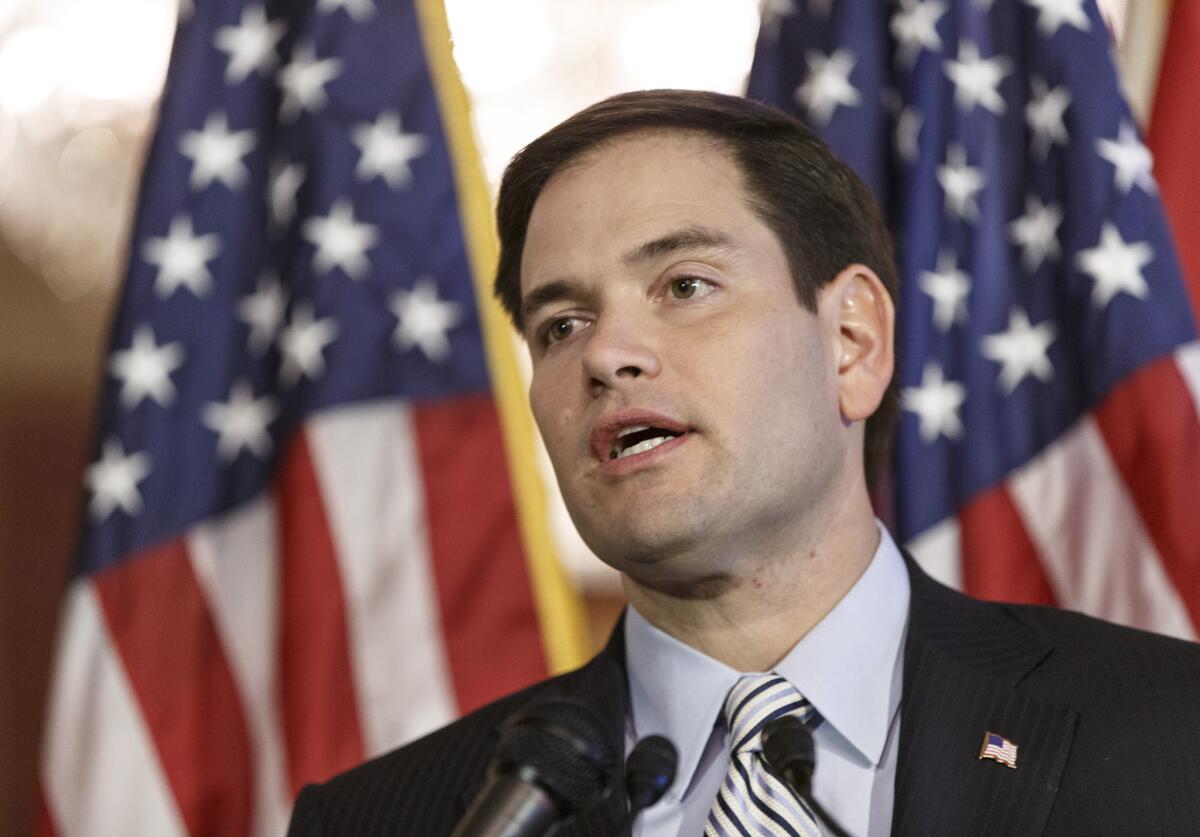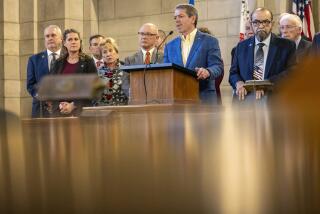Rubio calls for assistance overhaul on ‘War on Poverty’ anniversary

WASHINGTON -- Florida Sen. Marco Rubio called Wednesday for a “fundamental change” in how the government combats poverty by shifting responsibility for many existing federal assistance programs to states.
In a much-anticipated speech, Rubio, who is expected to be 2016 Republican presidential contender, said there was “a better way to help catch those in our society who have fallen down and help them get back on their feet.”
As Democrats have coalesced around the idea of addressing economic inequality, Rubio argued that the lack of economic mobility was just as significant a challenge.
In the midst of a debate in the Senate over extending unemployment benefits and with President Obama set to again champion an increase in the minimum wage, Rubio said Democrats were reverting to failed liberal proposals that rely too much on government spending.
TIMELINE: The year in politics
“Raising the minimum wage may poll well, but having a job that pays $10 an hour is not the American Dream,” Rubio said. “Our government programs at best offer only a partial solution. They help people deal with poverty, but they do not help them emerge from poverty.”
Rubio voted against advancing a bill Tuesday to extend unemployment insurance for 1.3 million jobless Americans.
With his speech Wednesday, delivered from the Senate’s Lyndon B. Johnson Room on the 50th anniversary of the president’s declaration of a “War on Poverty,” Rubio became the latest prominent Republican seeking to recast the party’s economic message.
He said Americans were “rightfully troubled that many of our people are still caught in what seems to be a pervasive, unending financial struggle.” But he argued that Johnson’s anti-poverty campaign had shown the failure of a liberal belief “that government spending is the central answer to healing the wounds of poverty.”
Rubio called instead for building on welfare reforms in the mid-1990s that he said empowered states to take a larger role in tailoring solutions that produced better results. He cited programs in Utah and Mississippi that require workers collecting unemployment benefits to enroll in online training programs.
He also called for replacing the earned income tax credit with a “federal wage enhancement” for those who take low-paying jobs.
PHOTOS: The battle over Obamacare
Rubio spoke at the same time that House Majority Leader Eric Cantor (R-Va.) was delivering an address across town on the promise of charter schools to reduce poverty, and hours after a group of House conservatives offered their own anti-poverty initiative.
As he has before, Cantor called for expanding charter schools, saying that “school choice is the surest way to break this vicious cycle of poverty.” He took aim at New York Mayor Bill de Blasio, who has been seen as a flag bearer of Democrats’ increasingly populist tone, warning that the new mayor’s proposed moratorium on opening new charter schools in the city would “devastate the growth of education opportunity.”
“The fact is, the government’s approach to fixing our schools has been too slow, too sporadic and too ineffective,” Cantor said. “And while we wait, we are losing generations of kids.”
Follow Politics Now on Twitter and Facebook
Twitter: @mikememoli
MORE NATIONAL COVERAGE:
Timeline: The year in politics
More to Read
Get the L.A. Times Politics newsletter
Deeply reported insights into legislation, politics and policy from Sacramento, Washington and beyond. In your inbox three times per week.
You may occasionally receive promotional content from the Los Angeles Times.







